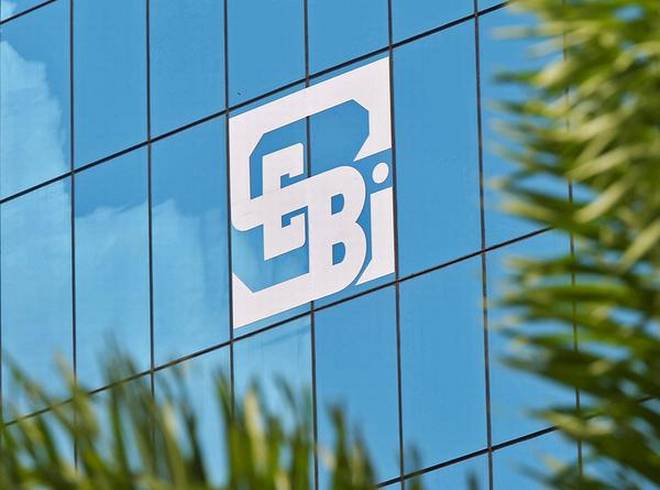This Article is written by Nikhil Sharma, a 4th year student pursuing B.A., LLB from NALSAR University of Law. He has analysed the impact of the 1100 penalty imposed by SEBI on NSE.
Introduction
Securities & Exchange Board of India (SEBI) has slapped 1,100 crores (approx.) penalty on National Stock Exchange of India Ltd. (NSE) through a series of orders dated 30th April. The penalty pertains to a 2015 complaint against NSE. According to the complaint, a few selected market players were able to access market price information ahead of the rest of the market; this enabled them to front run the rest of the market. The conspiracy of insiders by manipulating the co-location servers ensured substantial gains to a set of brokers. NSE was asked by SEBI to put aside it’s earning for Co-location trading in a separate account, which now has more than 2,000 crores. This money will act as a shock absorber and will reduce the cash flow implications of this penalty on the company, but this amount is not in the nature of the provision. This means it will reflect in the P&L A/C of the company. Apart from all of this, the regulator’s order did not hold the exchange responsible for any intentional fraud or unfair trade practice and sanctions imposed on the NSE will be lifted soon which is a breather for the exchange in all of this. Given the fact, that no serious charges were established against the NSE, is the penalty imposed by SEBI a just one or is it too harsh a measure?
Background
NSE was using High-Frequency trading (HFT) or algorithmic trading which is capable of executing thousands of orders on the stock exchange in less than a second. In January of 2010, NSE started offering a co-location facility to its members. Members could pay a determined fee to the NSE and in turn, they were allowed to place their computers in the same area as the stock exchange’s server. This provided them with faster access to the buying and selling orders being disseminated by the exchange’s trading engine.
Usually, for such market development, SEBI puts out a discussion paper to collect the public feedback and consults its Technical Advisory Committee and then issues guidelines after due deliberation with the various stakeholders. However, nothing like that happened in this case. There is no record in public domain about the use of Co-location facility by the NSE, apart from its own 2009-10 annual report. Bombay Stock Exchange (BSE) sent a protest note to the SEBI after this and demanded a fair regulatory framework for such facility to operate. But, this was ignored by the regulator.
The scam came to light by a letter sent to SEBI in 2015 by a Whistleblower which stated-
“I wish to draw your attention to a sophisticated market manipulation done at NSE for several years. The manipulation has been occurring by enabling certain vested traders to get market information ahead of others.”
This letter was also sent to an online magazine, Moneylife, which published the letter on its website. This triggered an investigation into the scam which resulted in a 1,100 Crores penalty on the NSE.
SEBI Action
In November 2015, the Technical Advisory Committee (TAC) based on the whistleblower’s letter concluded that NSE’s systems were prone to manipulation and recommended an investigation. SEBI, in the meanwhile, ordered the NSE to deposit its revenue from the co-locating trading in an escrow account. In 2016, Deloitte submitted a report to SEBI which reaffirmed TACs finding.
SEBI after conducting its investigation and questioning many former and current senior executive officers of NSE gave its order on 30th April, 2019. SEBI in its order could not establish serious charges of willful fraud or unfair trade practices against the NSE. The failure of the HFT and Co-location technology, adopted by NSE, in providing fair and equal trading environment to everyone has been established. Accordingly, the order imposes a penalty of 624.89 Crores along with an interest rate of 12% for 5 years to be deposited in Investor Protection and Education Fund (IPEF) and another order imposes an additional penalty of 62.58 crores along with interest rate of 12% starting from September 11, 2015, till the actual date of payment to IPEF. Cumulatively this will amount to 1,100 Crores (approx.).
In a separate order OPG Securities Pvt. Ltd, Way2health Brokers Pvt. Ltd. and GKN Securities Ltd. have also been fined for making a profit by making use of mal trade practices. SAT (Securities Appellate Tribunal) on 6th of May has stayed this order of the SEBI.
For their failure to ensure that the exchange was fully compliant with all the regulations governing the functioning of exchange, SEBI has penalized two of the previous CEOs of the board- Ravi Narayan and Chitra Ramakrishna. They have been ordered to deposit 25% of their salary, received as CEO of NSE between 2010 and 2014, in IPEF. Further, they have been disbarred from working for any market intermediary, stock exchange or a listed company for a period of 5years.
Impact on NSE
Bank of American Corp. and JP Morgan Chase & Co. have paid a bill of $110 Billion in past 11 years in fines and settlements. But these penalties and fines only amount to 5% of the total revenue earned by these banks in those 11 years. Even a $280 Million fine on JP Morgan and Citi Bank in Enron scandal amounted to 2% of their annual profit. Most of these fines were imposed by the regulators of U.S and U.K. In June of 2012, Barclays bank was fined $200 Million by Commodity future trading committee in LIBOR Scam. Here, Barclay was involved in market manipulation for at least 5 years from 2005-2010 and the involvement of its key managerial person in the scam was established. In 2018, Tesco Personal Finance was fined with £ 16.4 Million by financial conduct authority of U.K, for failure to exercise due care and diligence in protecting the interest of its current account holders against external digital attacks.
According to a study done by Duff & Phelps (A consultancy firm based in U.S.), the total value of penalty in Europe for market manipulation, for the period of 2013-2017, amounted to only $77.8 Million. In German jurisdiction, Securities and the trading market is regulated by the Wertpapierhandelsgesetz- WpGH (Security Trading Act). Section 120 of the act provides for the fines and other penalties. The amount of the fine depends on the type of market manipulation committed and can amount to up to EUR 5 million for individuals and up to EUR 15 million or 15% of total turnover for legal persons. In addition, the administrative offence may be punished with a fine of up to three times the economic advantage gained from committing the offence.
After considering the global trend on the quantum of penalties, highlighted above, $158 Million penalties on NSE may look like overkill, there are 2 reasons for this. First, $158 Million represents more than a quarter of its combined overall operating profit of those 4 years (2010-2014) and more than whatever money the exchange made from HFT until changing its system in 2014. Second, this fine is imposed when it is clearly held by SEBI in its order at page 100 (Para no. 10.1) that “To sum up, even though sufficient evidence is not available before me to conclude that…NSE has committed a fraudulent and unfair trade practice… I find that it is established that NSE has not exercised the requisite due diligence”. Here it is clear that no fraud has been established against the exchange. In such a situation, the penalty imposed by the regulator can be said to be, too harsh and will set a bad precedent, even defying the global trend of penalizing the corporate entities.
It remains to be seen what does the SAT decides to do with this penalty; if at all the matter is appealed by the NSE. Most of the experts are of the opinion that the best way ahead for the exchange is to pay the penalty and move ahead. As paying the penalty will leave more cash to the disposal of the company and allow them to go for their IPO. NSE’s MD & CEO, Vikram Limaye has said in an interview that they will have a board meeting and will discuss all the legal options available to the company before going ahead with the decision of paying the penalty.
Out of all this, the current management of NSE has few reasons to be happy. Firstly, the fact that SEBI hasn’t found them guilty of any intentional misconduct will cast away the cloud hanging over its credibility. Secondly, after 6 months moratorium, the NSE will be able to go for an IPO which has been long delayed because of the ongoing investigation. Even though the penalty may be harsh, it won’t have any cash flow implications. SEBI while carrying on its investigation had directed the NSE to keep aside all its revenue emanating from its co-location facility in an escrow account, with effect from September 2016. By now, the escrow account has already swelled up to 2000 Crores. This will allow the exchange management to have more cash to its disposal after paying of the penalty.
 Serato DJ Crack 2025Serato DJ PRO Crack
Serato DJ Crack 2025Serato DJ PRO Crack











 Allow notifications
Allow notifications


